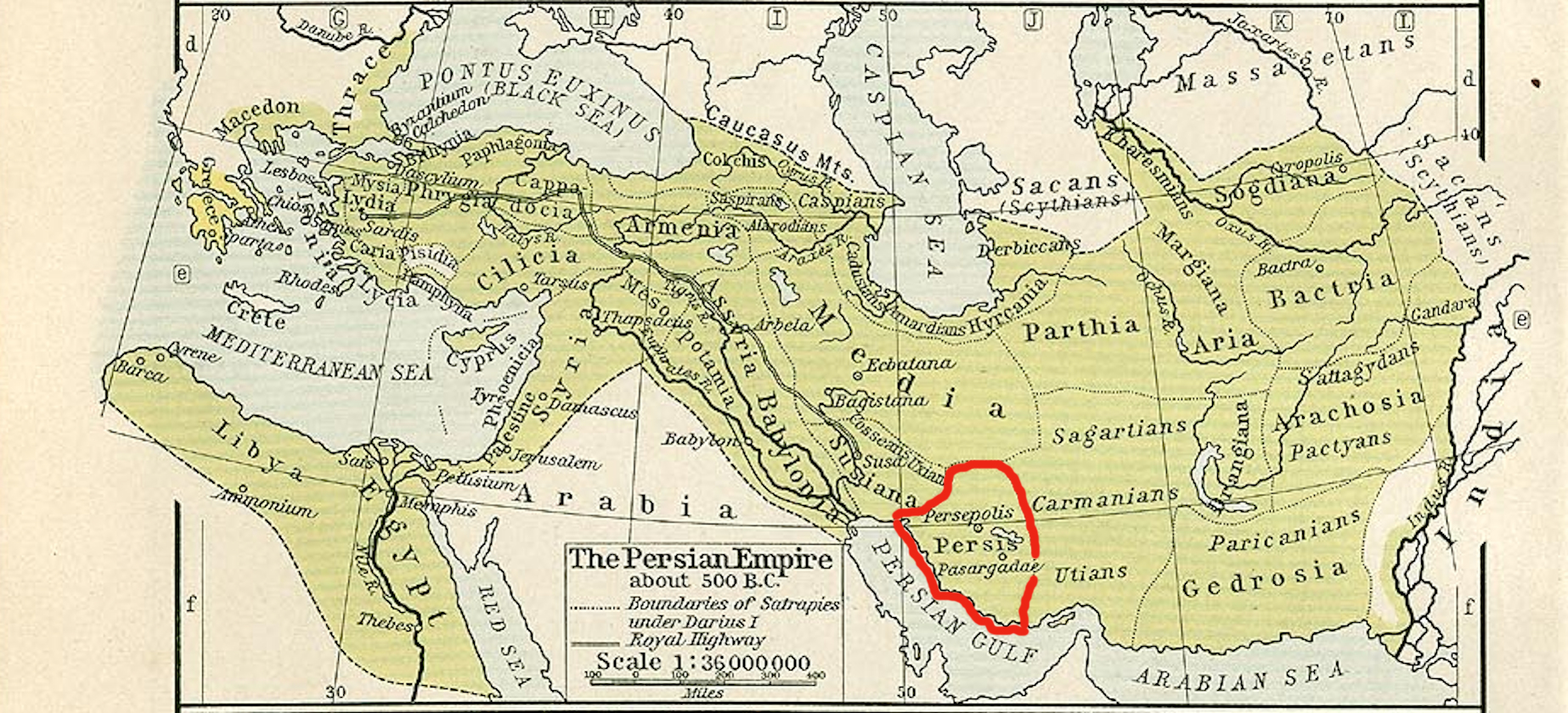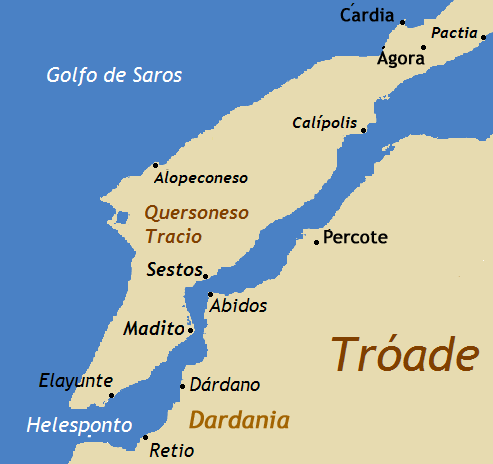|
Peucestas
Peucestas (, ''Peukéstas''; lived 4th century BC) was a native of the town of Mieza, in Macedonia, and a distinguished officer in the service of Alexander the Great. His name is first mentioned as one of those appointed to command a trireme on the Hydaspes. Prior to this he must have distinguished himself for his personal valour and prowess, as he was the person selected by Alexander to carry before him in battle the sacred shield, which he had taken down from the temple of Athena at Troy. In this capacity he was in close attendance upon the king's person in the assault on the capital city of the Malavas (325 BC); and all authors agreed in attributing the chief share in saving the life of Alexander upon that occasion to Peucestas, while they differed as to almost all the other circumstances and persons concerned. For his services on this occasion he was rewarded by the king with almost every distinction which it was in his power to confer. On the arrival of Alexander at Persepol ... [...More Info...] [...Related Items...] OR: [Wikipedia] [Google] [Baidu] |
Eumenes
Eumenes (; ; ) was a Ancient Greece, Greek general, satrap, and Diadoch, Successor of Alexander the Great. He participated in the Wars of Alexander the Great, serving as Alexander's personal secretary and later on as a battlefield commander. Eumenes depicted himself as a lifelong loyalist of Alexander's dynasty and championed the cause of the Macedonian Argead dynasty, Argead royal house. In the Wars of the Diadochi after Alexander's death, Eumenes initially supported the regent Perdiccas in the First War of the Diadochi, First Diadochi War, and later the Argead royalty in the Second War of the Diadochi, Second Diadochi War. Despite less experience as a commander, Eumenes defeated Craterus, one of Alexander's most accomplished generals, at the Battle of the Hellespont (321 BC), Battle of the Hellespont in 321 BC. After Perdiccas' murder in 320 BC Eumenes became a public enemy of the new Partition of Triparadisus, Post-Alexander regime under Antipater and Antigonus I Mono ... [...More Info...] [...Related Items...] OR: [Wikipedia] [Google] [Baidu] |
Somatophylax
''Somatophylakes'' (; singular: ''somatophylax'', σωματοφύλαξ) were the bodyguards of high-ranking people in ancient Greece. The most famous body of ''somatophylakes'' were those of Philip II of Macedon and Alexander the Great. They consisted of seven men, drawn from the Macedonian nobility, who also acted as high-ranking military officers, holding command positions such as general or chiliarch. Alexander the Great appointed Peucestas as eighth ''somatophylax'' after the siege of Malli. Under Alexander the Great (Note that this list is speculative in several cases and would be disputed by scholars. For example, Hephaestion was probably not named as early as given below. The only ''complete'' list of Alexander's bodyguard in the original sources is found in Arrian (6.28.4), upon the extraordinary appointment of Peucestas in Carmania.) ;336–334 * Aristonous, Lysimachus, Peithon, Arybbas, Balacrus, Demetrius, Ptolemy*. ;333 *Aristonous, Lysimachus, Peithon, ... [...More Info...] [...Related Items...] OR: [Wikipedia] [Google] [Baidu] |
Battle Of Gabiene
Battle of Gabiene was the second great battle between Antigonus I Monophthalmus, Antigonus Monophthalmus and Eumenes, two of Alexander the Great's successors (the so-called Diadochi). The battle was fought near Gabiene in Persia in the winter of 316-315 BC and ended the Second War of the Diadochi. It established Antigonus as the most powerful of the successors. Since the sole reference of this battle is ultimately from Eumenes' personal aide Hieronymus of Cardia (later transmitted through the historian Diodorus Siculus, Diodorus), who later switched his allegiance to Antigonus, he provides a unique perspective from both sides' point of view. Background After the death of Alexander the Great in 323 BC, his generals immediately began squabbling over his empire. Soon it degenerated into open warfare, with each general attempting to claim a portion of Alexander's vast kingdom. One of the most talented generals among the Diadochi was Antigonus Monophthalmus (Antigonus the One-eyed), ... [...More Info...] [...Related Items...] OR: [Wikipedia] [Google] [Baidu] |
Mieza, Macedonia
Mieza (), "shrine of the Nymphs", was a town in ancient Macedonia, where Aristotle was said to have taught the boy Alexander the Great between 343 and 340 BCE.pothos.orgAristotle (384-322 BC). However the definitive biography of Aristotle regards the Mieza location as "not credible" (p.43 in ) Ptolemy classifies Mieza among the cities of Emathia. Stephanus of Byzantium, on the other hand, deriving his information apparently from Theagenes, alludes to it as "''τόπος Στρυμόνος''", and adds that it was sometimes called Strymonium. The site where Mieza once stood is the modern Lefkadia, near the modern town Náousa, Imathia, Central Macedonia, Greece, and has been the subject of archeological excavations since 1954.Orkin, Lisa (18 July 1999)"Greece – Ruins Renewed: Seeking New Life For Past Glories" ''The Seattle Times'' (via Associated Press). Mieza was named for Mieza, in ancient Macedonian mythology, the daughter of Beres and sister of Olganos and Beroia ... [...More Info...] [...Related Items...] OR: [Wikipedia] [Google] [Baidu] |
Treaty Of Triparadisus
The Partition of Triparadisus was a power-sharing agreement passed at Triparadisus in 321 BC between the generals (''Diadochi'') of Alexander the Great, in which they named a new regent and arranged the repartition of the satrapies of Alexander's empire among themselves. It followed and modified the Partition of Babylon made in 323 BC upon Alexander's death. Following the death of Alexander, the rule of his empire was given to his half-brother Philip Arrhidaeus and Alexander's son Alexander IV. However, since Philip was mentally ill and Alexander IV born only after the death of his father, a regent was named as Perdiccas; in the meantime, the former generals of Alexander were named satraps of the various regions of his empire. Several satraps were eager to gain more power, and when Ptolemy I Soter, satrap of Egypt, rebelled with other generals, Perdiccas moved against the former but was killed by a mutiny in his camp. Ptolemy declined the regency and instead brought to the of ... [...More Info...] [...Related Items...] OR: [Wikipedia] [Google] [Baidu] |
Mallian Campaign
The Mallian campaign was conducted by Alexander the Great from November 326 to February 325 BC, against the Mallian people, Mallians of the Punjab region, Punjab. Alexander was defining the eastern limit of his power by marching down-river along the Hydaspes to the Acesines (now the Jhelum and Chenab), but the Malli and the Oxydraci combined to refuse passage through their territory. Alexander sought to prevent their forces meeting, and made a swift campaign against them which successfully pacified the region between the two rivers. Alexander was seriously injured during the course of the campaign, almost losing his life. Background The campaign against the Malli (identified with the Malavas) occurred a year after Alexander crossed the Hindu Kush, and eight years after the start of his campaigns against the Persian Empire. At this time, his conquests stretched from Greece into India; some of the Indian tribes had previously been part of the Persian Empire. The political situatio ... [...More Info...] [...Related Items...] OR: [Wikipedia] [Google] [Baidu] |
Persis Map
Persis (, ''Persís;'' Old Persian: 𐎱𐎠𐎼𐎿, ''Parsa''), also called Persia proper, is a historic region in southwestern Iran, roughly corresponding with Fars province. The Persian ethnic group are thought to have initially migrated either from Central Asia or, more probably, from the north through the Caucasus. They would then have migrated to the current region of Persis in the early 1st millennium BC. Achaemenid Empire The ancient Persians were present in the region of Persis from about the 10th century BC. They became the rulers of the largest empire the world had yet seen under the Achaemenid dynasty which was established in the late 6th century BC, at its peak stretching from Thrace-Macedonia, Bulgaria- Paeonia and Eastern Europe proper in the west, to the Indus Valley in its far east. The ruins of Persepolis and Pasargadae, two of the four capitals of the Achaemenid Empire, are located in Fars. Macedonian Empire The Achaemenid Empire was defeated by Alexand ... [...More Info...] [...Related Items...] OR: [Wikipedia] [Google] [Baidu] |
Persophile
Persophilia (, pârsi dusti) is the feeling or expression of interest in, respect for, and appreciation of Persians on the part of a non-Persian. More specifically, a Persophile is someone who has a strongly positive predisposition or sympathy towards Persia and the Persian people, with an admiration for their Persian language, language and Persian literature, literature, Persian culture, culture (Persian art, art, Music of Persia, music, Persian cuisine, cuisine, etc.), History of Iran, history, or Government of Iran, government. The earliest use of the word may have been by the Royal Numismatic Society of the United Kingdom of Great Britain and Ireland, United Kingdom in 1838, referring to the pro-Persian policy of a Cypriot king of Marion, Cyprus, Marion. The opposite sentiment is known as Anti-Iranian sentiment, Persophobia.Ram, H. (2009): ''Iranophobia: The Logic of an Israeli Obsession'', Stanford University Press, Origins Ancient Iran Foreign admiration of Persian soci ... [...More Info...] [...Related Items...] OR: [Wikipedia] [Google] [Baidu] |
Antigonus I Monophthalmus
Antigonus I Monophthalmus ( , "Antigonus the One-Eyed"; 382 – 301 BC) was a Ancient Macedonians, Macedonian Greek general and Diadochi, successor of Alexander the Great. A prominent military leader in Alexander's army, he went on to control large parts of Empire of Alexander the Great, Alexander's former empire. He assumed the title of ''basileus'' (king) in 306 BC and reigned until his death. He was the founder of the Antigonid dynasty, which ruled over Macedonia until its conquest by the Roman Republic in 168 BC. Antigonus likely served under Philip II of Macedon. He took part in Alexander's Wars of Alexander the Great, invasion of Achaemenid Persia and was named satrap of Phrygia. After Alexander's death in 323 BC, he also received Pamphylia and Lycia in accordance with the Partition of Babylon. However, he later incurred the enmity of Perdiccas, the regent of Alexander's empire, and was driven from Phrygia. He fled to Greece and formed an alliance with Antipater, later joine ... [...More Info...] [...Related Items...] OR: [Wikipedia] [Google] [Baidu] |
Alexippus
Alexippus (Ancient Greek: ) was an ancient Greek physician who was mentioned by Plutarch as having received a letter from Alexander the Great himself, to thank him for having cured one of his officers, a man named Peucestas Peucestas (, ''Peukéstas''; lived 4th century BC) was a native of the town of Mieza, in Macedonia, and a distinguished officer in the service of Alexander the Great. His name is first mentioned as one of those appointed to command a trireme on ..., of a wound incurred during a bear hunt probably around 327 BC. References Physicians of Alexander the Great 4th-century BC Greek physicians {{AncientGreece-bio-stub ... [...More Info...] [...Related Items...] OR: [Wikipedia] [Google] [Baidu] |
Athena
Athena or Athene, often given the epithet Pallas, is an ancient Greek religion, ancient Greek goddess associated with wisdom, warfare, and handicraft who was later syncretism, syncretized with the Roman goddess Minerva. Athena was regarded as the patron and protectress of various cities across Greece, particularly the city of Athens, from which she most likely received her name. The Parthenon on the Acropolis of Athens is dedicated to her. Her major symbols include Owl of Athena, owls, olive trees, snakes, and the Gorgoneion. In art, she is generally depicted wearing a helmet and holding a spear. From her origin as an Aegean tutelary deity, palace goddess, Athena was closely associated with the city. She was known as ''Polias'' and ''Poliouchos'' (both derived from ''polis'', meaning "city-state"), and her temples were usually located atop the fortified acropolis in the central part of the city. The Parthenon on the Athenian Acropolis is dedicated to her, along with numero ... [...More Info...] [...Related Items...] OR: [Wikipedia] [Google] [Baidu] |





